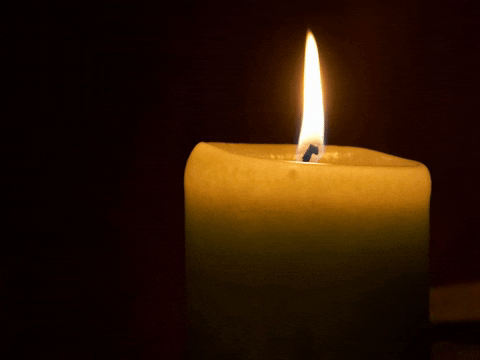The Myth of "Perfect" Sleep: Why Waking Up at Night Might Be Normal
We’ve all heard the golden rule of sleep: eight-uninterrupted-hours is the gold standard for health. But what if I told you that waking up in the middle of the night isn’t necessarily a problem? In fact, it may be part of a natural sleep pattern that humans have followed for centuries. If you’ve ever found yourself awake at 2 AM, staring at the ceiling and wondering why your body won’t just sleep through the night, you’re not alone. And—good news—you might not be broken at all.
THE "FIREKEEPER" HYPOTHESIS: WHY SOME PEOPLE NATURALLY WAKE AT NIGHT
Historically, not everyone was meant to sleep in one long stretch. Many cultures followed biphasic sleep, meaning people naturally woke up for an hour or two in the middle of the night before going back to sleep. Some researchers believe this was an evolutionary advantage—certain members of a group stayed lightly awake to keep watch, tend the fire, and protect their sleeping community. These individuals, sometimes called "firekeepers", were naturally more wakeful at night without being exhausted the next day.
If you’re someone who wakes up in the middle of the night and struggles to go back to sleep, it’s possible that your body is wired for this pattern. Instead of fighting it, you might benefit from working with it.
MODERN LIFE VS. ANCIENT SLEEP CYCLES
Before artificial lighting and rigid work schedules, humans often embraced polyphasic sleep, meaning they didn’t expect to sleep in one solid block. In pre-industrial Europe, there are records of people waking in the middle of the night to pray, read, or even visit neighbors before returning to sleep for a "second sleep." This was considered completely normal.
Today, we treat waking up at night as a disorder, even though history and biology tell us it’s common. The real issue isn’t waking up—it’s how we respond to it.
HOW TO WORK WITH (NOT AGAINST) YOUR SLEEP PATTERN
If you’re someone who naturally wakes at night, here are ways to embrace it without stress or frustration:
Reframe It: Your Sleep Isn’t "Broken"
Instead of worrying that something is wrong, remind yourself: waking up in the night is natural. If you accept it rather than resist it, you might actually fall back asleep faster.
Make the Most of Wakeful Moments
If you wake up in the middle of the night, don’t immediately panic or stare at your phone. Instead, do something calming and quiet:
Guide yourself through a self-healing.
Practice slow breathing or meditation.
Sip a warm, non-caffeinated drink like chamomile tea.
Read a few pages of a book (ideally a physical book, not a screen).
Journal or jot down thoughts that are keeping you awake.
By treating this time as a peaceful intermission rather than "insomnia," you may find it easier to relax back into sleep.
Embrace Naps or Polyphasic Sleep (If Possible)
If your lifestyle allows, incorporating a nap during the day can balance out nighttime wakefulness. Many cultures around the world, from Spain to Japan, have long recognized the benefits of siestas or hirunes short rest periods in the afternoon. A 20-30 minute nap can be incredibly restorative.
Support Your Nervous System for Restorative Sleep
For those who wake easily due to stress, caregiving responsibilities, or hyper-alertness, these strategies can help:
Use white noise or earplugs (I like these Loop Earplugs) to block out disruptive sounds while still allowing necessary wakefulness if needed.
Practice relaxation techniques before bed, such as breathwork, meditation, or progressive muscle relaxation.
Consider herbal or nutritional support, like magnesium, passionflower, or L-theanine, to gently encourage restfulness without sedation.
Keep your environment dimly lit if you wake up at night. While total darkness maximizes melatonin production, dim lighting (like candlelight or warm, red/orange-toned bulbs) still allows some melatonin release, whereas bright or blue-toned light suppresses it significantly. You might consider a red light night light or camp light like this one.
FOR CAREGIVERS: NAVIGATING SLEEP WITH ONE EAR OPEN
If you’re a caregiver—whether for a child, elderly parent, or partner—you may feel that deep sleep just isn’t an option. Many caregivers exist in a state of hyper-vigilance, always listening for the next need. If this resonates with you, know that:
It’s okay to take rest where you can find it.
Restorative "micro-naps" (even 10 minutes) can help reset your nervous system.
Finding small moments to relax your body, even if you’re not asleep, can be just as valuable.
WHEN IS WAKEFULNESS A SIGN OF SOMETHING MORE?
While some people naturally wake at night as part of their rhythm, new-onset sleep disruption isn’t always normal. If you've traditionally slept through the night and are now struggling with wakefulness, this could be a sign of:
Allostatic load or chronic stress, which can lead to a “wired-but-tired” state, disrupting sleep.
Cortisol imbalance, where stress hormones remain high at night, making it hard to stay asleep.
Aging-related sleep changes, as our circadian rhythm naturally shifts earlier with age. Older adults often experience "phase advancement", meaning they feel sleepy earlier in the evening and wake earlier in the morning. This is due to changes in the suprachiasmatic nucleus (SCN) of the hypothalamus, reduced melatonin production, and lighter sleep cycles.
Underlying health conditions, such as thyroid imbalances, low progesterone, menopause, chronic pain, or blood sugar fluctuations, which can interfere with restful sleep.
Understanding whether your wakefulness is a natural variation or a sign of something deeper is key. If you've always woken up in the night and function well with it, there's no need to worry. But if it's new, disruptive, or making you feel exhausted during the day, it may be worth exploring potential underlying causes with a holistic health professional.
SLEEP IS NOT ONE-SIZE-FITS-ALL
Some people thrive with biphasic or polyphasic sleep, while others need uninterrupted rest. Instead of assuming that all nighttime wakefulness is a problem, the key is listening to your body, recognizing patterns, and addressing underlying imbalances when necessary.
So the next time you find yourself awake at 3 AM, instead of fighting it—maybe just tend the fire for a little while. But if your sleep has recently changed and leaves you feeling drained, it might be time to dig deeper. In the next post, we’ll explore how stress, hormones, and lifestyle habits can impact sleep patterns—and what you can do to restore balance. If you want a primer, check out my Tour of the Body: Endocrine posts on the adrenal glands and the pineal gland. Stay tuned for more insights on how to support your sleep naturally!
P.S. None of the external links in this post are affiliate links—just products I’ve personally used and found beneficial. As always, use your best judgment when purchasing, and remember that these mentions are for informational purposes only, not medical advice.



